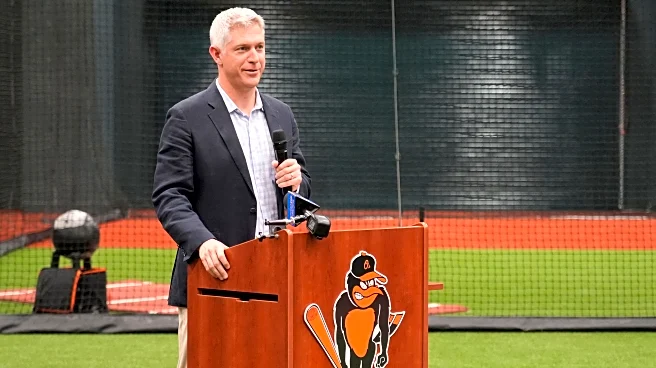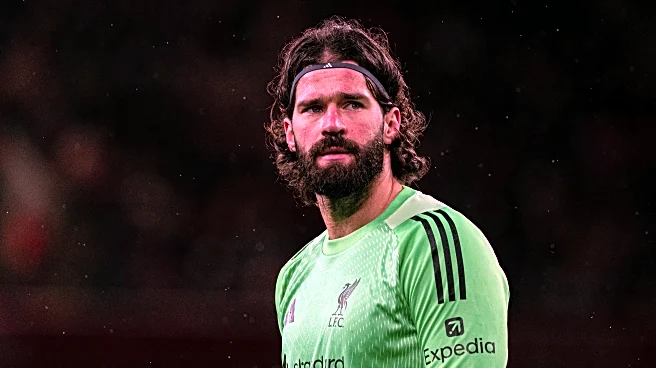What's Happening?
Kim Hye-seong, a player for the Los Angeles Dodgers, has been named to the MLB rookie second team, as announced by MLB Pipeline. The selection process involved choosing the top rookie-qualified player at
each position, resulting in 24 players being named across two teams. Kim Hye-seong was recognized for his performance at second base, despite not making the first team. The first team included notable players such as Luke Keaschall from the Minnesota Twins, who overcame a fractured forearm to achieve impressive statistics. Kim Hye-seong played 71 games, batting .280 with three home runs and 17 RBIs, showcasing his skills in his debut year.
Why It's Important?
The recognition of Kim Hye-seong on the MLB rookie second team highlights the growing influence of international players in Major League Baseball. His inclusion underscores the Dodgers' successful scouting and development strategies, which have brought diverse talent to the league. This achievement not only boosts Kim's career prospects but also enhances the Dodgers' reputation for nurturing rookie talent. The selection process, which considers various performance metrics, reflects the competitive nature of MLB and the high standards required for rookie recognition.
What's Next?
Kim Hye-seong's future in MLB looks promising as he continues to develop his skills and adapt to the league's demands. His performance this season sets a foundation for potential growth and increased playing time. The Dodgers may leverage his talent in upcoming seasons, aiming to further integrate him into their strategic lineup. As the MLB continues to embrace international players, Kim's success could inspire more Korean athletes to pursue careers in the league, potentially leading to increased scouting efforts in Asia.
Beyond the Headlines
Kim Hye-seong's achievement as the second Korean player to be selected to the rookie team since its inception in 2020 highlights the cultural exchange and diversity within MLB. This milestone may encourage more collaborations between MLB and international leagues, fostering a global sports community. Additionally, it raises questions about the impact of international players on team dynamics and fan engagement, potentially influencing MLB's marketing strategies and global outreach.










